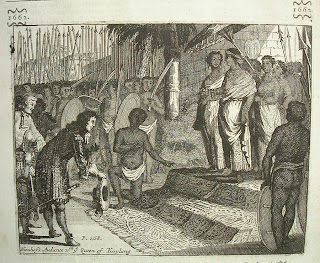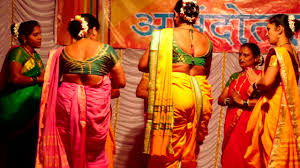Puppets: A good Language Teacher-Part-I




Puppets: A good Language Teacher-Part-I
L ea rning Eng l i sh through puppets is lea rning through our own buddy than a tea che r.
He r e , Puppe t s sha r e s the di f f i cul t y of l e a rning the l angua g e .
Introduction:
T h e m o m e n t o n e m e n t i o n s o r t a l k s a b o u t t h e
‘ p u p p ets ’, i t i s o bv i o u s to re ca l l P res c h o o l a n d
Kinde r g a r t en chi ldr en. As i t i s a my th tha t Puppe t s a r e
only for Primary and Kindergarten children. It is the fact
t h a t , p u p p e t s a r e l o v e d b y a l l a g e g r o u p , i t i s t h e
p r e s e n t a t i o n a n d s u b j e c t t h a t ma t t e r s . N o d o u b t t h a t
t h e t i n y - t o t s l o v e p u p p e t s , b u t p u p p e t s c a n p l a y r o l e
b e y o n d me r e e n t e r t a i n e r s . I n f a c t t h e y a r e v e r y g o o d
l a n g u a ge tea c h e r.
Any language teacher can use puppets can make the
language learning effective, as every learning has to be
m e a n i n g f u l . T h e i n i t i a l l e a r n i n g e n t h u s i a s m f a d e s a s
the children grow from one stage to another be it about
a language or a subject. This is at times ignored both by
parents and teachers. Here where every teacher has to
analysis problem and find out methods to solve it. If an
observation is thrown- a normal child is happy learning
a l p h a b ets , t wo - l ette r wo rd s , t h re e l et te r, s i m p l e
s e n t e n c e s , a n d t o s ome e x t e n d me a n i n g a n d s o o n i n
t h e i n i t i a l s t a g e . W h e n t h e i n t e n s i v e i n c r e a s e s , t h e
e r ror s inc r e a s e s , di s int e r e s t inc r e a s e s , the l angua g e or
t h e s u b j e c t a p p e a r s l i k e d r e a d f u l m o u n t a i n , a v e r s i o n
towa rds the l angua g e de v e lops , i t then g e t s conv e r t ed
into hate, learning is no more enjoyable, and all the fun
i s l o s t . S l o w l y t h e c h i l d i g n o r e s t h e l a n g u a g e o r t h e
subj e c t and starts s cor ing low. Dur ing the proc es s the
chi ld ma r k s the impr e s s ion tha t ‘X’ l angua g e or
subject is hard or tough and the child cannot learn.
Who decides it? Of course the child, but who are to be
h e l d r e s p o n s i b l e f o r ma k i n g a c h i l d d e c i d e o r s a y s o ?
We - the t e a che r s and pa r ent s .
Well, somebody rightly said that ‘teaching is an art’,
n o t a l l t h e t e a c h e r s a r e b l e s s e d w i t h g o o d t e a c h i n g
s k i l l s . T h e r e a r e m o r e t e a c h e r s b y d e f a u l t i n t o t h i s
profession than by virtue and passion for it. So, Puppets
play the role of rescuer here. By using puppets, teachers
can ma ke the i r students l ea rn bette r.
B e f o r e w e s t a r t t o t e a c h l a n g u a g e , w e n e e d t o
conv inc e our s e l v e s and othe r s too about the ne ed and
imp o r t a n c e o f l a n g u a g e i n o u r d a i l y l i f e . I t i s j u s t n o t
l e a r n i n g f o r l e a r n i n g s a k e , b u t t o k n o w t h e l o g i c a l
c o n s c i e n c e b e h i n d i t .
Reasons and importance of language learning
o Learning a language prepares the learner for learning.
o Learning language/s gives confidence to the l e a rne r
and helps in paying attention.
o L a n g u a g e l e a r n i n g a d v a n c e s b e t t e r e s s a y - w r i t i n g
ability in learner.
o T h i s e n c o u r a g e s s t u d e n t s i n t h e d e v e l o p m e n t o f
cognitive skills.
o L a n g u a g e l e a r n i n g e x e r c i s e s a n d wo r k s h e e t s h e l p s
i n t h e d e v e l o p m e n t o f t h e s k i l l s o f a n a l y s i s a n d
evaluation.
o Language learning also promotes group working and
relationship building, innovative thoughts, approaches and
problem-solving and decision-making.
o L a n g u a g e l e a r n i n g f a c i l i t a t e s s t u d e n t s t o
c ommu n i c a t e we l l , s h a r e e x p e r i e n c e s , a n d a i d s i n
academic needs.
L angua g e l e a rning be i t r e g iona l or mothe r tongue
or English or any other language per se, it indoctrinates
s t u d y s k i l l s: k n owi n g t h e me a n i n g a n d p r o n u n c i a t i o n
helps listening and reading, evaluating and interpreting
i n f o r m a t i o n .
F o r i n s t a n c e , l e a r n i n g E n g l i s h t h r o u g h p u p p e t s i s
l ea rning through our own buddy than a tea che r. He re ,
Puppe t s sha r e s the di f f i cul t y of l e a rning the l angua g e ,
put for th the mi sta kes mad e f re q u e nt l y, di s cus s about
l i k e s a n d d i s l i k e s o f t h e l a n g u a g e , r e a s o n s t o o . T h e s e
exploration through puppets which represents the whole
c l a s s of l e a rne r s ins t i g a t e s , promot e s othe r l e a rne r s to
join di s cus s . Thi s sor t of e x e r c i s e s de f ini t e l y he lps the
t e a che r s in ident i f y ing the l a cuna of the t e a ching s k i l l
and the subj e c t i ts e l f.
T h e f i r s t h u r d l e i s f a c e d w h e n g r a m m a r o f t h e
language is introduced. The more the deep one explores
i n t o t h e l a n g u a g e m o r e d i f f i c u l t i t s o u n d s a n d m o r e
co nf u s i o n to o . T h at ’s t h e go o d t h i n g a b o u t t h e
grammarians who have already dived into the language
o c e a n a n d h a s s e g r e g a t e d a n d s y s t e m a t i z e d t h e s e
a spe c t s of the l angua g e . We a s a t e a che r s and pa r ent s
h a v e t o m a k e o u r s t u d e n t s u n d e r s t a n d t h e s e s i m p l e
p a r t s o f t h e s p e e c h w i t h o u t c o n f u s i o n . G r a m m a r i s
s ome t h i n g l i k e t o b e t a u g h t o r l e a r n t c o r r e c t l y a s t h e
s e n t e n c e f o rma t i o n , s e n t e n c e s t r u c t u r e a n d l a n g u a g e
L ea rning Eng l i sh through puppets is lea rning through our own buddy than a tea che r.
He r e , Puppe t s sha r e s the di f f i cul t y of l e a rning the l angua g e .|4|
March 2011 Teachers dot com Teaching Transactions
©Indian Society for Education and Environment (iSee) www.tea c h e rs d o t . com
rul e s and l angua g e us a g e depends upon i t . Thi s c an be
done easily with the help of the puppets. It’s like teacher
and puppe t s e x chang ing the i r rol e s and pl a y ing i t .
One c an ha v e a s many puppe t s made out of thr a sh
or be s t out of wa s t e or e v en c an a s s i gn thi s a s a t a s k
unde r a l e a rning s k i l l s . For thi s ba s i c home ha s to be
done be for e jumping into thi s e xplor a tor y c l a s s . Br e a k
the English lessons that need to be taught into smaller
u n i t s a n d w r i t e c o r r e s p o n d i n g a c t i v i t y r e l a t e d t o t h e
l e s s o n .
Parts of Speech Puppets
Make puppets to represent the parts of speech. For
i n s t a n c e i n E n g l i s h t h e ma i n p a r t s o f t h e s p e e c h o f a
s ent enc e i s : Subj e c t—Obj e c t— Pr edi cat e. Ma k e equa l
numbe r of puppe t s r epr e s ent ing the ma in pa r t s of the
s p e e c h . E x p l a i n t h e i n t e r c o n n e c t i v i t y o f p a r t s o f t h e
s p e e c h a n d a b s e n c e o f o n e o r s o w o u l d a f f e c t t h e
sentence and make it meaningless. If these three main
pa r ts o f t h e sp e e c h es a re c l ea r, o t h e r g ra m m at i ca l
h u rdl es ca n b e h a n dl ed eas il y. A ga i n , m a ke s i m il a r
d i v i s i o n o f s e n t e n c e s w h e n t e a c h i n g o t h e r l a n g u a g e s
like Tamil, Hindi, Kannada or so. To add further meaning
t o i t g o d e e p i n t o t h e s u b j e c t a n d i n t r o d u c e N o u n s ,
Pronouns and so on. Ha v e the k ids us e the puppe t s to
r e ad the s ent enc e s and show how the pa r t s of spe e ch
have to work together.
Conclusion:
This is a start process and not an end by itself. This
s impl e e x e r c i s e sha l l he lp us to be mor e c r e a t i v i t y and
i n n o v a t i v e . B e i n g w i t h k i d s g a t h e r i n g t h e f e e l i n g t h e
form of feedback shall helps to look in to the gaps and
e r ror s .
This article has been published in www.teachersdot.com (Monthly school magazine in English and Tamil) Vol. 1 Issue 3 February 2 2011










Comments